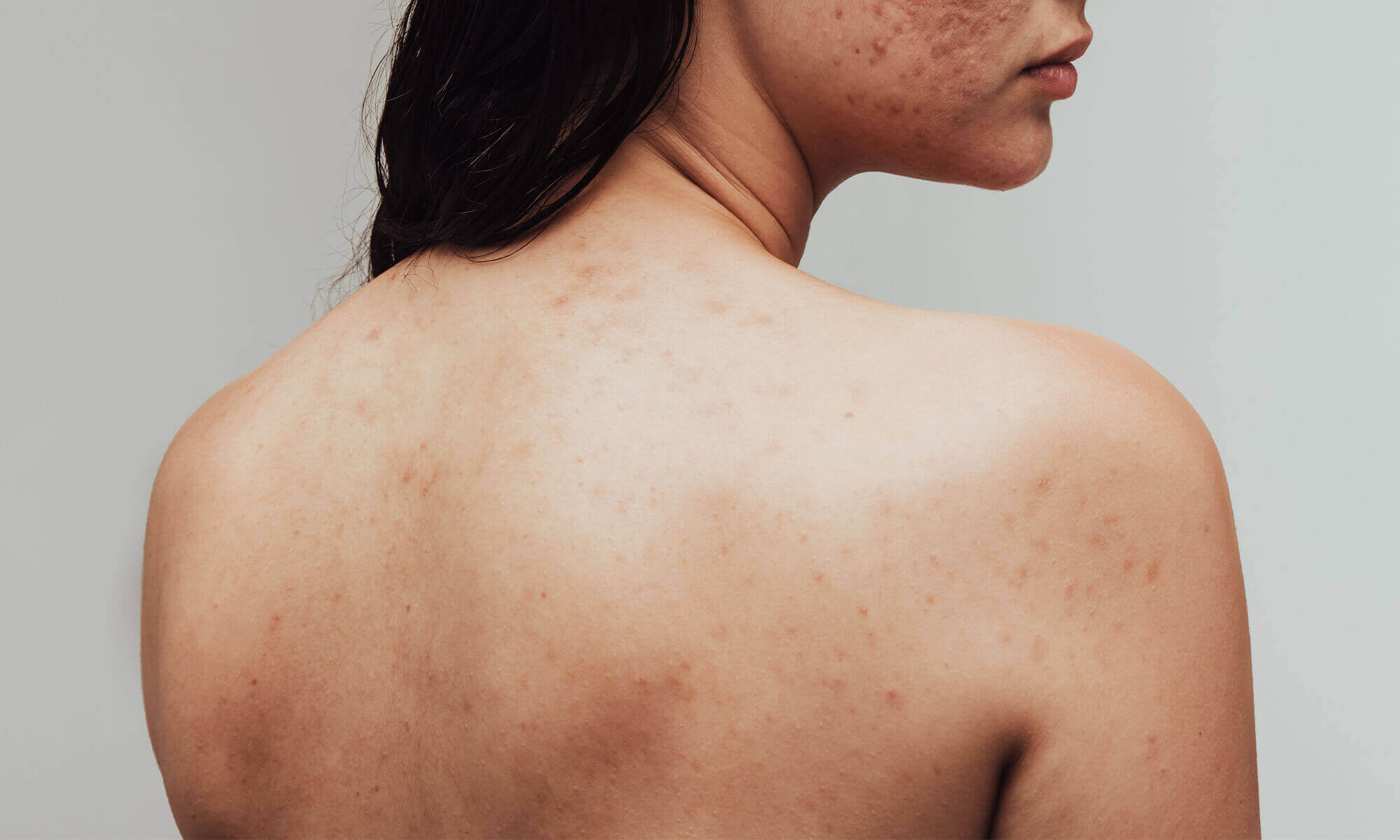Amelia Grant
How to Deal With Winter Acne Breakouts

Acne is a common skin problem that almost everyone encounters at some point in their lives. When hair follicles in the skin become clogged, it usually appears on the face, back, or chest. In minor cases, blackheads or whiteheads can form on the skin; but, in more severe cases, they can manifest as pus-filled patches or cysts that can become infectious. Even when acne has resolved, these patches can leave scars on the skin.
Acne can worsen in the winter because the skin is dry and lacks nourishment. As a result, it creates more sebum, an oily fluid that lubricates the hair and skin to prevent drying. Excess sebum clogs hair follicles, resulting in the formation of spots that can get infected and create cysts.
Why is acne worse in the winter?
Because of changes in the atmosphere that lower humidity, your skin becomes drier in the winter. Outside, the cold weather creates a considerable decline in air moisture, which, when combined with the dry air of domestic heating systems, diminishes the moisture held by the skin, causing it to dry out. The harsh winter temperatures and winds outside, as well as usual winter behaviors like taking long, hot showers, dehydrate your skin even more.
To prevent further moisture loss, your dry skin produces more sebum. Extra sebum can block your pores and hair follicles and you are more likely to develop spots and acne. Dry skin is also a less efficient barrier against infection, allowing bacteria to more easily infect any patches and trapped sebum, leading the skin to grow cysts and become itchy.
How to prevent winter acne
1. Don’t take long hot showers
Long, hot showers dehydrate your skin. If you want to take a bath, use lukewarm water because it is gentler on your skin. If you want to take a hot shower, keep it to five minutes to avoid damaging your skin. If you don't exercise every day, you don't need to shower for a long time every day. If you're more active, limit your showers to once a day at most to avoid skin moisture loss and discomfort.
2. Moisturise regularly, particularly after showering
Apply moisturizer immediately after washing or bathing, as moisturizing damp skin is more effective than dry skin. This is due to more moisture being trapped and rehydrated on the skin's surface. Concentrate on acne-prone areas such as your face, back, or chest, and use products that are "non-comedogenic," which means they will not clog your pores. Using a few layers of moisturizer instead of purchasing thicker lotions is generally more effective.
You should also use a cream rather than a lotion, as the latter can contain alcohol and fragrance, which can irritate the skin. Look for creams that contain hyaluronic acid and ceramides rather than botanicals such as lavender, tea tree oil, or coconut oil.
3. Avoid make-up and skincare products that are oil-based or fragrant
Oily skincare and cosmetics are more prone to clog your pores. As previously stated, water-based non-comedogenic products are less prone to cause this. It is also critical to choose fewer aromatic skincare products. The stronger the scent of a moisturizer, the more likely it is to irritate your skin, causing it to become dry, itchy, and cracked. Wherever feasible, use fragrance-free products.
4. Cleanse your skin regularly and don’t over-exfoliate
It is critical to maintain your skin clean by washing it often, but not excessively. Reduce your usage of soaps, especially fragrant ones, as these might dry out your skin's oils. Try to use soaps containing moisturizing preparations or soap-free cleansers. While exfoliating is vital, you should only do it once or twice a week because it removes moisture and oils from your skin, making it drier and itchier.
5. Use a humidifier indoors
Consider purchasing a humidifier and placing it in the room where you sleep to battle the dry climatic conditions that occur throughout the winter. Setting the machine to 50-60% humidity should be enough to rehydrate the top layer of your epidermis and mitigate the effects of prolonged exposure to dry conditions.
How to treat winter acne
There are acne remedies that you can take orally or apply to your skin in addition to preventing winter acne by rehydrating your skin.
Treating mild winter acne
If your acne is mild, a pharmacist should be able to advise you on how to treat it with over-the-counter benzoyl peroxide gels or creams. Quinoderm and Acnecide are two well-known brand names. These function by eliminating the blockage from the skin pores while also acting as an anti-bacterial agent. If you're using it for the first time, start with a lesser concentration (4-5%) and test it on a tiny patch of skin first, as some people find it irritates their skin. Stronger concentrations (up to 10%) are also available.
Treating severe winter acne
If you have severe acne, you should contact your dermatologist for a prescription. Some treatments, such as Skinoren lotion, contain azelaic acid and work similarly to benzoyl peroxide. Retinoids are another type of prescription acne treatment. They can cause some redness and peeling of the skin at first, but this normally goes away with time.
Epiduo Gel, which contains benzoyl peroxide and adapalene, is another prescription-only medication. Adapalene works similarly to retinoids in that it particularly targets the skin processes that produce acne by minimizing the creation and serving of blocked pores.
Oral antibiotics, as well as those administered to the skin, are sometimes required. Direct application of Dalacin-T solution, Duac Once Daily gel, and Zineryt Topical solution is possible. If applying treatments to the skin causes too much irritation, Minocin MR capsules, Oxytetracycline tablets, and Tetralysal capsules can be taken orally.

